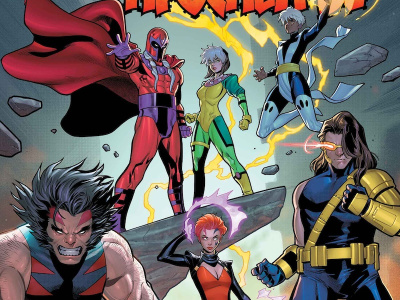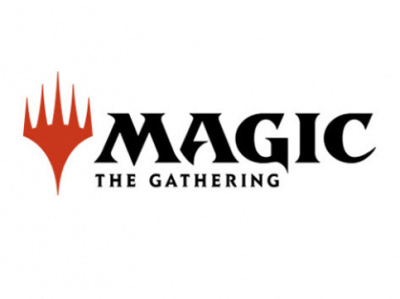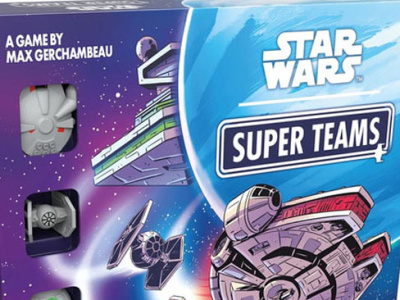We sat down with comiXology CEO David Steinberger at San Diego Comic-Con for a two-part interview to get his lay of the land and to learn more about comiXology’s recent initiatives. In Part 2, we talk about in-app purchasing and the differences and overlap between the digital and print customers. In Part 1, we talked about the market for digital comics and personalization.
One of the big changes three years ago, which a publisher just brought up yesterday (which is what brought it to mind), was the loss of in-app purchasing in the iOS platform. Is anything ever going to change on that?
Steinberger: I don't have anything to report. I know that Amazon announced they're going to get Prime Video onto the Apple TV which is a big change. I don't have any information I can share.
It seemed like that was definitely a factor in slowing growth for digital three years ago, maybe reducing the opportunity to impulsively buy comics while they're on their phones.
There's no question that we have had to put a lot of effort into simplifying that and have done a lot of work towards making it easier.
Can you comment on what are bestsellers for comiXology versus what are bestsellers in the print world?
Sure. People can actually look. I can't remember the algorithm for our top page, but it's no more than a week long. We have several Image books that come much further up, for instance.
Like?
Like Wicked and Divine, Top 10 every time, every time.
By every time, you mean every new periodical issue?
Yes.
If you look at our Top 300, we have much more deep publisher representation than Direct Market.
If you look at the Diamond Top 300 sometimes, but certainly Diamond’s Top 100, you can sometimes see only three, four books outside of Marvel and DC that make it at all.
That's not the same for us. We see a much wider variety. We have more books from IDW and more books from BOOM! and just a wider variety of publishers making our Top 100, Top 300 for sure.
What does that tell you about the differences in the audience?
It tells me a couple of things. One is we don't have an inventory problem; a comic book store is limited by the space that they have. They can't just carry everything all the time.
You have to remember we build and cultivate readers only. We don't build and cultivate collectors. The self‑selection does actually help and can continue. Those people can self‑select continuously where we don't have any variant covers. We don't have any foil‑embossed limited editions. If you're not telling a great story, and you're not connecting with readers, you're not going to make it with us. You can stimulate that.
Not to begrudge the collectors market, it's two businesses in one for the retailer, both the collector piece and the reader piece. Reading and great story wins overall in both our segments, both print and online, but you can get a short‑term boost from juicing the collector market. I think that's pretty much the reason.
We do probably have a wider variety of people that don't necessarily find or feel comfortable in some comic book stores. I give all credit to comic book stores. The last decade has been great in terms of being more welcoming and better lighting and all that stuff. But I can still go in a store and not find even some of the great licensed books.
You can still go into a store and see only Marvel and DC. That's a self‑fulfilling prophecy.
We've talked about this from the very beginning in our business plan. The risk is all in the retailer. They can't spread out and take risk.
It's no risk to us. If it doesn't sell, we're not delivering you a comic. We're not spending a whole lot of money. We spend some money upfront to do guided view and that type of thing but no sweat for us to carry it.
You can get more ‑‑ I don't want to call it niche ‑‑ new audiences that wouldn't even be a blip on the radar of a retailer because we don't have any inventory issue. That's where it comes back to this personalization thing.
It's going to be super powerful for us to be able to say, "Hey, you seem to love LGBT work, even authors. We don't know that you're LGBT, but you're connecting to this stuff and it's appealing to you. Let us give you more great work that's totally hidden, never made it to Diamond, never made it to the retail store, has only come through Submit (comiXology’s self-publishing platform)."
There's a lot of that stuff (trying) to find an audience. I think that's going to be hugely important. We get a little taste of it through the self‑selection at this point.
You talked about the differences in the audiences, readers versus collectors. What about demographically? What are you seeing these days and how has that changed?
We do know that from 2011 to now, we've doubled the female audience. It's more than doubled in the new audience obviously because our base audience the first couple years was like the Direct Market, very heavily skewed male. So that's huge.
We continue to see people buying print that get introduced to digital comics for the first time through us. We shared a figure a while ago now that we had done a survey that of people who said in the survey they bought their first comic through comiXology, 60 percent of had become print buyers as well, and that seems to stay pretty consistent. We feel like we're adding to the health of the segment.
The manga segment has done really, really well for us They're more than double the size this year than they were last year, year over year top‑line revenue, which is huge. I think that points to distribution as an issue. Manga distribution got killed five years ago or so with Borders closing.
We're doing same-day-as-Japan issues (or episodes as they call them) that come from the magazines and we've got just way more content... We can launch with Kodansha Digital and VIZ and all that and bringing that into CU.
It would be really great to have 10 really big publishers all together in a way bigger market segment. The Direct Market is just designed to make that hard. I feel like, not making any predictions, what we're seeing in the non‑Top 5 or non‑Big 2, is super interesting.
While we're perfectly happy to have Marvel and DC do incredible work and have an incredibly huge fan base, it's healthier for them and for us to have many more people reading comics and graphic novels. I feel like there's something there that's going on in terms of being able to increase revenue while in the face of a downturn in Direct Market that says there's something happening in terms of diversity for us.
Any other observations about the interaction between digital and print?
Yes. I'll give you a nugget. We have very, very low percentage digital only, very low. In comiXology's most recent customer survey, 72% of customers indicated that they read print, so only 28% exclusively read digital.
To me, we came into this segment saying we don't have to hurt it, we can only help it, and that kind of number just says people buy in different ways and want to read in different ways.
We have people that tell us they experiment in digital: they buy a bunch of stuff, and the things they fall in love with they end up print because they want to archive it.
We're actually doing an experiment (we may have finished it), on seeing if people who we know read a lot of ( I don't remember the book we picked) Saga or The Walking Dead, do they want a hardcover?
You're cross‑selling digital / print?
Yeah, we just don't think there's one thing.
Editor’s Note: We asked after the interview to clarify the nature of the test, whether comiXology customers were linked to an Amazon page, and Steinberger answered, "We are testing – and will continue to test in different ways – if there’s an engagement loop between print and digital that is good for everyone."
Click here to go back to Part 1.

In-app Purchasing, Digital and Print Differences, Overlap
Posted by Milton Griepp on August 14, 2017 @ 5:42 am CT
MORE COMICS
In One-Shot with Cover by Paco Medina
August 12, 2025
The one-shot comic containing the four stories will have a cover by Paco Medina.
And Why Some Aren't Paid
August 12, 2025
Not all post-petition invoices were getting paid as they come due.
MORE NEWS
WPN Event Features Variant Cover Comic Book as a Top Prize
August 12, 2025
Wizards of the Coast announced the Spider-Man: The Final Battle , a new WPN event for Magic: The Gathering.
New Intergalactic Racing Game
August 12, 2025
Asmodee revealed Star Wars: Super Teams , a new intergalactic racing game.








